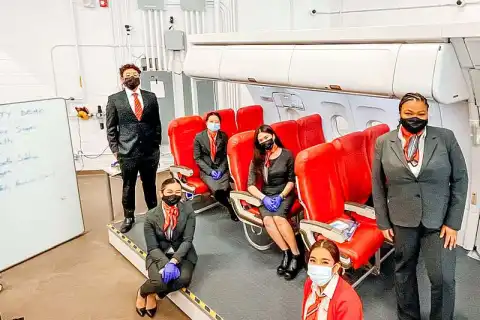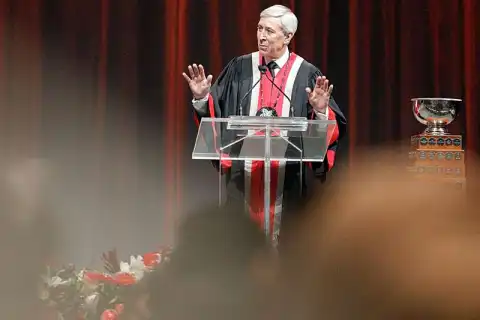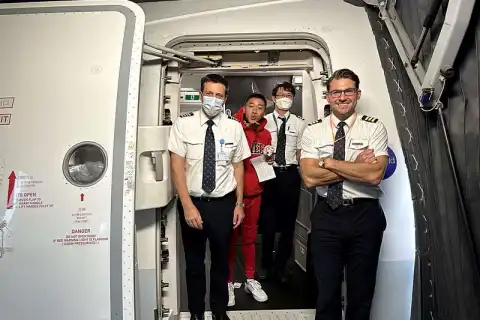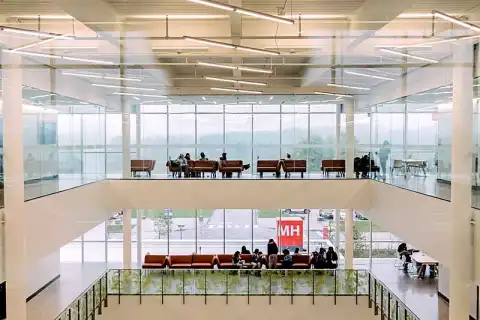Diploma - Aviation Operations
- 2 years
- Duration
- 17,845 CAD/year
- Price
- Rolling admission
- Start
- Rolling admission
- Deadline
- Diploma
- Degree
- Mixed
- Format
- Toronto / Canada
- Location
Program description
This two-year diploma program will equip you with the technical and practical skills necessary to work in a variety of airside operations positions, as well as the knowledge of Canadian regulations.
If you want to become a dispatcher in Canada, you can get the training you need in the Aviation Operation certificate program.
Skills
Throughout this program you will develop the following skills
- Aviation standards
- History and regulations
- Aviation management
- Airside operations
- Flight planning and dispatch
- Meteorology
- Emergency planning
Program structure
Semester 1
- Aviation Computer Applications
- Aeronautics I
- Aviation Management I
- Aviation Studies I - History and Standards
- Communicating Across Contexts
Semester 2
- Flight Dispatch I
- Flight Planning I
- Meteorology
- Mathematics
- Safety Management Systems I - Documentation and Implementation
Semester 3
- Airside Operations
- Aviation Management II
- Flight Planning and Dispatch
- Health and Safety
- Technical Communications
Work Term Preparation (Work-Integrated Learning option only)
- Work-Integrated Learning Term
Semester 4
- Airline Operations
- Emergency Planning and Preparedness
- Aviation Security
- Safety Management System II - Quality Control and Assurance
- Transport Logistics - International Customs and Freight
Price
Tuition fees - 17,845 CAD
Books and Supply Costs - 1,550 CAD
Please note: All costs are approximate, may vary by campus and are subject to change at any time without notice.
Requirements for applicants
Academic Requirements:
- Transcripts from high school for grades 10, 11, and 12 that include all prerequisite classes for the program.
- A high school or postsecondary degree (certificate of completion).
- Transcripts or certificates for any university or tertiary college courses or programs you have finished, whether they were taken domestically or abroad, may be submitted.
- An official/certified English translation must be included with any academic records that are written in a language other than English.
At any moment, Seneca has the right to check submitted transcripts. Seneca maintains the right to ask for authentic transcripts to be delivered directly to Seneca from the issuing school for courses and certificates obtained inside Canada. If such action is required, applicants will be informed.
English Proficiency Requirements:
If English is not your first language, show one of the following:
- Minimum of two years full-time study in an English-speaking nation
- Minimum one year of full-time postsecondary education in an English-speaking nation
- Successful completion of an intense English program like the English Language Institute
- English proficiency exam results from one of the international testing agencies. Only two-year-old tests are valid.
English language test score requirements
- CAEL CE and CAEL online - Minimum 60
- Cambridge English Exams (B2 First/FCE, C1 Advanced/CAE or C2 Proficiency/CPE) - Minimum 169 with no skill below 162
- Duolingo - Minimum score 105 to 110
- IELTS Academic - Minimum 6.0 with no skill below 5.5
- PTE Academic - Minimum score 58
- TOEFL iBT (including MyBest TOEFL and Home Edition) - Minimum 80 with no skill below 20
- TOEFL Revised Paper Delivered - No skill below 20
About the university

A public institution with many campuses in Peterborough, Ontario, and the Greater Toronto Area is called Seneca College of Applied Arts and Technology. At the bachelor, diploma, certificate, and graduate levels, it provides both full-time and part-time programs.
Seneca has been involved in foreign education for many years and today draws over 10,000 students from over 130 different nations each year. Through intense language instruction that may last anywhere from two months to more than a year, Seneca's English Language Institute helps overseas students become ready for post-secondary education. The college has a number of alliances with schools abroad and is growing its efforts in collaborative applied research and work/study abroad opportunities.
Seneca in a Nutshell
- With 30,000 full-time students and more than 70,000 registrations for continuing education each year, this institution is among the biggest in Canada.
- 7,000 foreign students from more than 150 nations make up a diversified student body.
- In terms of connections to other postsecondary institutions, Ontario colleges rank first.
- In Toronto, York Region, and Peterborough, there are ten campuses.
- Every year, on average, 8,000 bursaries and 2,600 Seneca scholarships/awards are given out.





